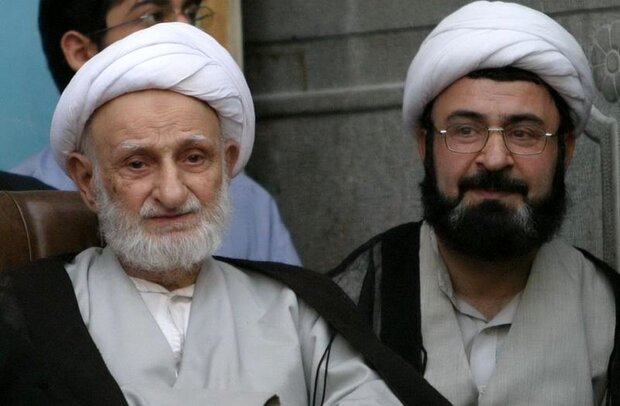AhlulBayt News Agency (ABNA): Grand Ayatollah Behjat was one of the most prominent contemporary Shiite Sources of Emulation and at the same time one of the most pious and virtuous ulama, and it can be said that he was one of the most outstanding Shiite mystics who reached the peak of self-refinement in the worship of God.
Hojat al-Islam Sheikh Ali Bahjat, the son of the late Ayatollah Bahjat, explains the lifestyle of this great mystic:
If there was good food in the house, we (children) would eat it, but he (my father) would eat simple food. My mother used to say, “I always wished that your father would tell me once to prepare a particular food for him even until the age of ninety.”
In the last days of his life, he (my father) used to tell us not to cook for him. “If I can, I eat bread and Eshkeneh (a very humble food), or I eat plain rice with Eshkeneh, or I eat fried egg,” he used to say. If he had a cold, he would eat porridge. Of course, in the last days, he drank milk a few days a week as prescribed by his doctor.
He had a calculated behavior with the family. It wasn’t like he spent all his time with his family, or on the contrary, he didn’t spend any time with his family. He had divided his time into special times for worship, studying, thinking, and Dhikr. He also eats three meals with the family.
Because his eating time took a little longer, during this time he was informed about the conditions of the people in the house. Even Sele Rahem (family and relative ties in Islam) was done during mealtime. He even asked about the condition of the neighbors during meals. For example, when his food was being prepared or brought for him, he would ask about the neighbors and their problems. “Is that neighbor’s problem solved?” he used to ask about neighbors.
Therefore, maybe his lunch lasts an hour. “Do you know about someone’s condition? We do not know about him or her (one of our relatives). Ask him how he or she is, or write him a letter,” he used to say. Then he told us to ask about the condition of our neighbors. “Raise their problems and solve them.”
If a box of fruit was brought to our house, our father would say, “Divide them into three parts; give a portion to the neighbors; take a portion yourself and leave a portion aside.” I remember once when I was distributing fruits, he passed by me. He stopped for a while and said, “Do not separate the good fruits for us!”
Our father, the late Ayatollah Bahjat, liked to have a guest every day for lunch. Yes, that was his moral. Of course, we were not very satisfied with this. Since childhood, we used to say, “Tell them to cook more and better food for guests.” He replied, “No, bring the same food that we eat for the guests.”
He used to say, “One meal is enough for two people. Give me my food, I will eat together with my guest.” Sometimes we were at the table and the guest arrived at the time of our meal. At this time, my father used to say, “Prophet Ibrahim was looking for food for long distances. Now this gentleman (guest) is at the door, and he is God’s guest.” He liked to share the very food he had with others.
My father believed quarrels or arguing in family relationships should be completely abandoned because this has no fruit. “Arguing is of animal nature. If one animal blows one horn, another animal will blow two horns and if it doesn’t, it will finally blow one! This is animal nature!”
Man should not take these quarrels seriously and leave it to God and refer to Sharia and see what his duty is according to Sharia at that moment. If someone behaves in this way, the other party will also behave the same, and the matter will be resolved.
He himself did not answer the objections at all. He used to listen but did not answer. Although many words were irrelevant and unfair. Sometimes I protested, “Wasn’t that a mistake? Why didn’t you answer that person?” He used to say, “Will the argument end by responding and continuing the quarrel?”
His commands and prohibitions were mostly about Halal and Haram (divine permission and prohibition.) Since I matured and reached the age of fifteen (Sharia maturity according to Islam), not once did he tell me to buy bread, or get something for the house. Sometimes he tells us with gentle expressions that he wants us to do something. For example, he used to say, “If the bread is at home, maybe it will be used.” Or he said, “Your mother would like to have something in the house.”
Sometimes he used to buy things for my mother and give her as gifts. He also instructed the children that they should always be patient with their mother, and should not answer her harshly in any way.
**************
End/ 345

